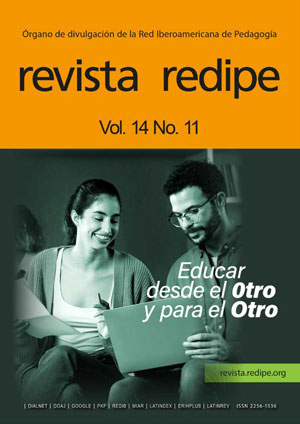Educational technologies: Challenges and opportunities in the regulation of digital innovation in classrooms
Main Article Content
Keywords
Artificial intelligence in education, Educational technologies, Legal prospective
Abstract
This article addresses the legal perspective on the use of educational technologies. It examines how emerging technologies, such as artificial intelligence, augmented reality, and virtual learning environments, impact the educational field and the legal challenges that arise around their implementation. Through a literature review and qualitative analysis, the main regulatory frameworks, ethical principles, and legal norms necessary to regulate these technologies are discussed, highlighting the need for clear and adaptive public policies. The results demonstrate a significant legal gap in various jurisdictions and propose more coherent regulatory strategies focused on the protection of student rights and data privacy.
References
Benjamin, R. (2019). Race After Technology: Abolitionist tools for the New Jim Code. Polity Press.
Binns, R. (2018). Equidad en el aprendizaje automático: Lecciones de filosofía política. En Actas de la Conferencia de 2018 sobre Equidad, Rendición de Cuentas y Transparencia (pp. 149- 159). https://proceedings.mlr.press/v81/ binns18a.html
Binns, A. (2018). Fairness in Machine Learning: Lessons from Political Philosophy. In Proceedings of the 2018 Conference on Fairness, Accountability, andTransparency, .149-159. https:// proceedings.mlr.press/v81/binns18a. html
Castells, M. (2009). Communication power. Oxford University Press.
Cobo, C. (2016). La innovación pendiente: Reflexiones y provocaciones sobre educación, tecnología y conocimiento. Fundación Ceibal.
Duque, N. (2009). Modelo Adaptativo MultiAgente para la Planificación y Ejecución de Cursos Virtuales Personalizados. In Universidad Nacional de Colombia.
Dussel, I. (2018). La materia educativa de las imágenes: tecnologías, visualidad y pedagogía. Amorrortu Editores.
Floridi, L. (2014). he Fourth Revolution: How the infosphere is reshaping human reality. OUP Oxford.
Floridi, L. (s.f.). The ethics of information of Information. https://doi.org/10.1093/ acprof:oso/9780199641321.001.0001
Lozada R. López, E. Espinoza M. Arias N. de J., & Quille, G. (2023). Los Riesgos de la Inteligencia Artificial en la Educación. Ciencia Latina Revista Científica Multidisciplinar, 7(5), 7219-7234. https:// doi.org/10.37811/cl_rcm.v7i5.8301
Magallanes, K., & et.al. (2023). La inteligencia artificial aplicada en la innovación educativa en el proceso de enseñanza y aprendizaje. Revista Latinoamericana de Ciencias Sociales y Humanas, https://doi.org/10.56712/latam.v4i2.706



